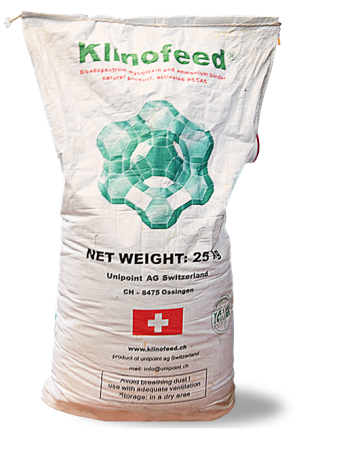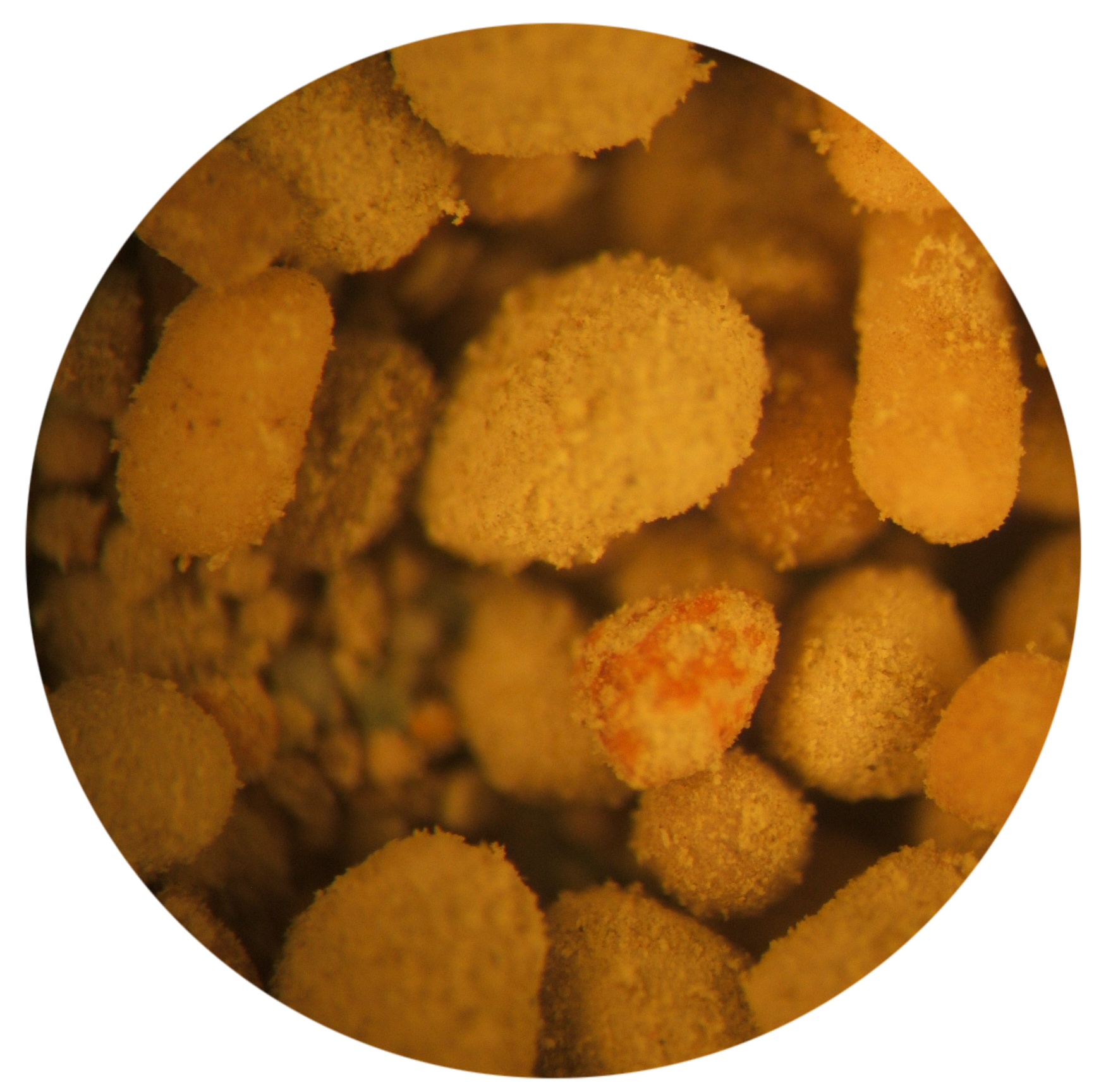
Klinofeed is prepared from a natural silicon silicate (clinoptilolite of sedimentary origin). This active mineral, with its unique structure and composition, has the ability to bind selectively and irreversibly ammonia and other toxic pollutants within the digestive tract.
Contaminants such as mycotoxins are poisons produced from the secondary metabolic processes which occur naturally in a variety of molds that grow on food crops.
The amount and type of mycotoxin produced varies depending on the type of mold predominating and on environmental conditions such as temperature and humidity. Levels of mold growth and mycotoxin production in already affected crops may be exacerbated by stresses imposed on the crop by insects, weeds or adverse climatic conditions. Furthermore the harvesting process and storage conditions can promote the production of storage mycotoxins, thus silage, hay and straw are often heavily contaminated.

The effect of mycotoxins on animals varies from acute disease at one extreme to simple metabolic problems that reduce productivity at the other. Mycotoxins can reduce feed consumption and digestion, reduce resistance to disease, increase reproductive problems and generally reduce production and performance.
Ammonia, created in the digestive tract, is highly toxic to livestock even in low concentrations.
In order to limit the damage caused by these contaminants various known measures are employed, one of which is to add silicates to the feed.
Klinofeed is such a silicate. It has a selective and irreversible binding capacity, enabling it to specifically bind ammonia without adsorbing vitamins, trace elements and amino acids. This ability to selectively bind ammonia is unique to Klinofeed.
In the production of animal feed low inclusion rates and cost are very important. Klinofeed meets these and all other legislative requirements for pollutant binders, being approved in the EU Register of Feed Additives (E568), by EU Organic Farming standards and by the FiBL.







